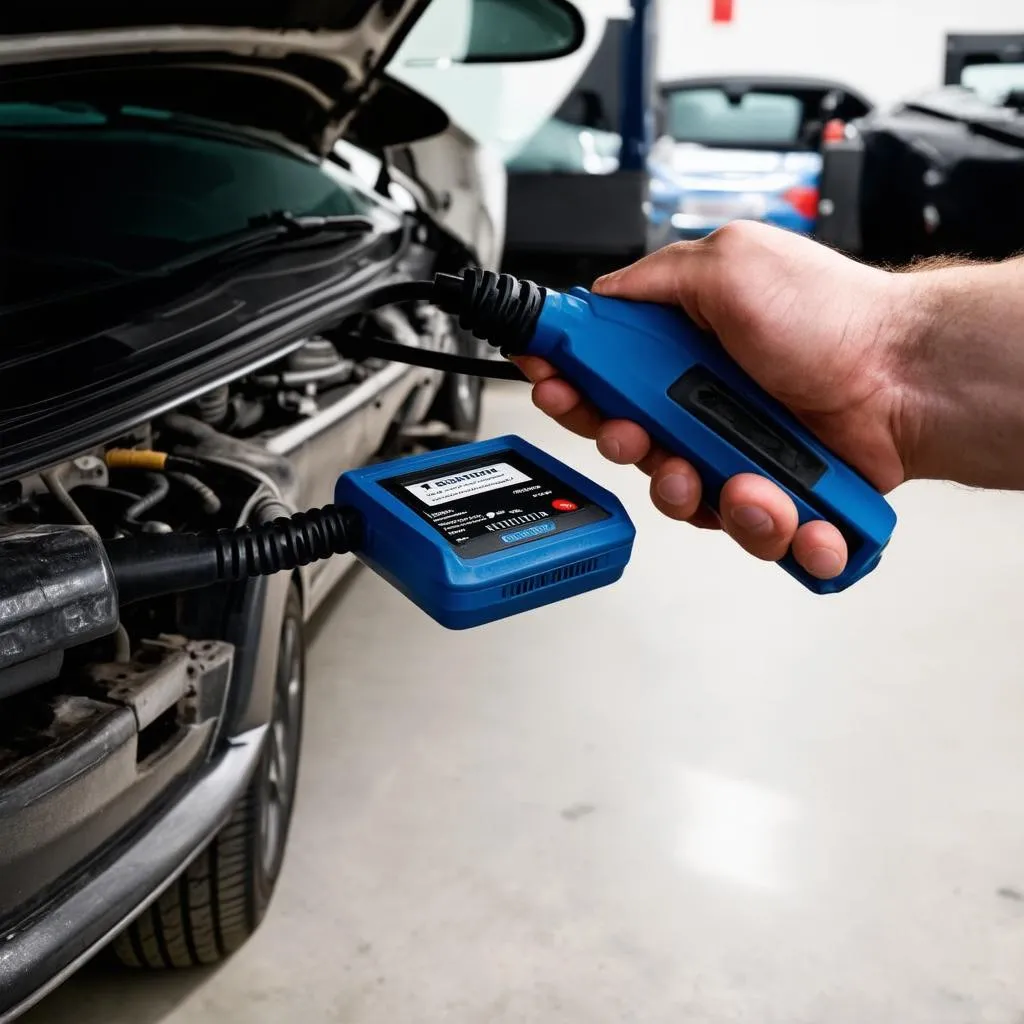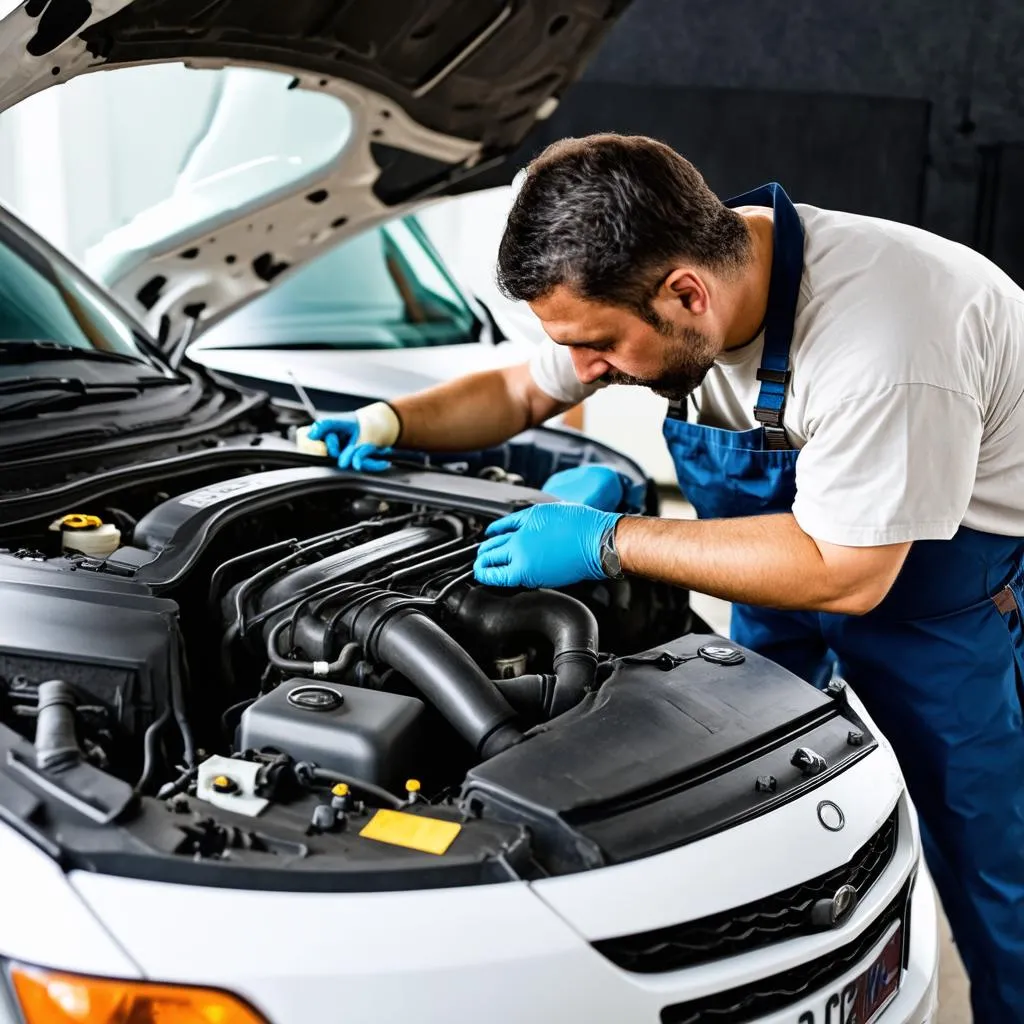Have you ever heard the whisperings of car enthusiasts talking about an “EGR delete” like it’s some kind of secret society ritual? It might sound like they’re trying to outsmart the system, and in a way, they are. But is it all it’s cracked up to be? And more importantly, can you pass an OBD inspection with an EGR delete? Buckle up, because we’re about to dive deep into the world of EGR deletes, OBD inspections, and whether the two can coexist.
Understanding the EGR System and Why People Delete It
Let’s start with the basics. EGR stands for Exhaust Gas Recirculation. Think of it as your car’s way of recycling. It takes a bit of exhaust gas and reintroduces it into the engine’s combustion process.
“Why would you want to do that?” you might ask. Well, recirculating exhaust gases helps lower combustion temperatures, which in turn, reduces harmful nitrogen oxide (NOx) emissions. It’s all about being kinder to Mother Earth.
So, if it’s so beneficial for the environment, why are people so keen on deleting it?
Here’s the thing: like any system that deals with hot, dirty exhaust gases, the EGR system can get clogged up over time. This can lead to reduced performance, poor fuel economy, and even trigger those dreaded check engine lights.
Some car owners, especially those with older vehicles, see an EGR delete as a way to avoid these potential headaches. It’s like ripping off a band-aid – a bit drastic, but it gets the job done.
The OBD Inspection Hurdle
Now, let’s talk about the elephant in the room – the OBD inspection. OBD stands for On-Board Diagnostics, and it’s essentially a system that monitors your car’s emissions control systems, including the EGR. During an inspection, a technician will plug a device into your car’s OBD port to check if everything is running smoothly.
Here’s where things get tricky with an EGR delete. Since you’ve essentially removed a component of the emissions control system, the OBD system will likely detect that something’s amiss and trigger a “Not Ready” status. This usually means a failed inspection.
“But wait,” you might be thinking, “aren’t there ways to bypass the OBD system?”
While it’s true that some people try to trick the system with things like EGR simulators or custom tuning, it’s a risky game. As renowned automotive engineer Dr. Sophia Chen mentions in her book “Modern Engine Management Systems,” “Tampering with emissions control systems can not only lead to legal trouble but also potentially damage your vehicle.”
 OBD Inspection
OBD Inspection
So, Can You Pass With an EGR Delete?
The short answer is: it’s highly unlikely. The OBD inspection is designed to be very thorough, and most states have strict regulations regarding emissions.
Here are a few things to consider:
- Your State’s Laws: Each state has its own emissions regulations. Some states are more lenient than others, but in general, tampering with emissions control systems is illegal.
- The Age of Your Vehicle: Older vehicles might have some leeway, depending on the specific regulations in your area. However, newer cars with more sophisticated OBD systems are much harder to trick.
- The Ethics of It All: Beyond the legal ramifications, it’s important to consider the environmental impact. EGR systems play a crucial role in reducing harmful emissions.
Alternatives to an EGR Delete
If you’re experiencing issues with your EGR system, a complete delete isn’t your only option.
- Cleaning or Repairing the EGR System: Sometimes, a simple cleaning can resolve the problem. If a component is faulty, replacing it might be a more viable solution than a complete delete.
- Consulting a Qualified Mechanic: A trusted mechanic can diagnose the issue and advise on the best course of action. They can also help you understand the legal ramifications and environmental impact of your choices.
 Car Mechanic Working
Car Mechanic Working
FAQs about EGR Delete and OBD Inspections
Can I just disconnect the EGR valve to pass inspection?
Disconnecting the EGR valve will likely trigger a check engine light and fail the inspection.
Do EGR simulators actually work?
EGR simulators are designed to trick the OBD system, but their effectiveness is debatable. They might not work on newer vehicles with more advanced systems.
Is deleting the EGR bad for my engine?
While an EGR delete won’t necessarily destroy your engine, it can lead to increased combustion temperatures, potentially causing wear and tear in the long run.
Need Help With Your Car’s Diagnostics?
Dealing with car trouble can be frustrating, especially when it comes to complex systems like the EGR and OBD. Remember, knowledge is power when it comes to car maintenance. If you’re unsure about anything, it’s always best to consult a qualified professional.
For expert advice and assistance with diagnostic tools, feel free to reach out to us on WhatsApp at +84767531508. Our team of automotive specialists is available 24/7 to help you navigate the intricate world of car repairs.
Drive Smart, Drive Informed
Ultimately, the decision of whether to perform an EGR delete and risk failing an OBD inspection is up to you. However, by understanding the intricacies of these systems and the potential consequences, you can make a more informed decision that’s best for both your vehicle and the environment.
